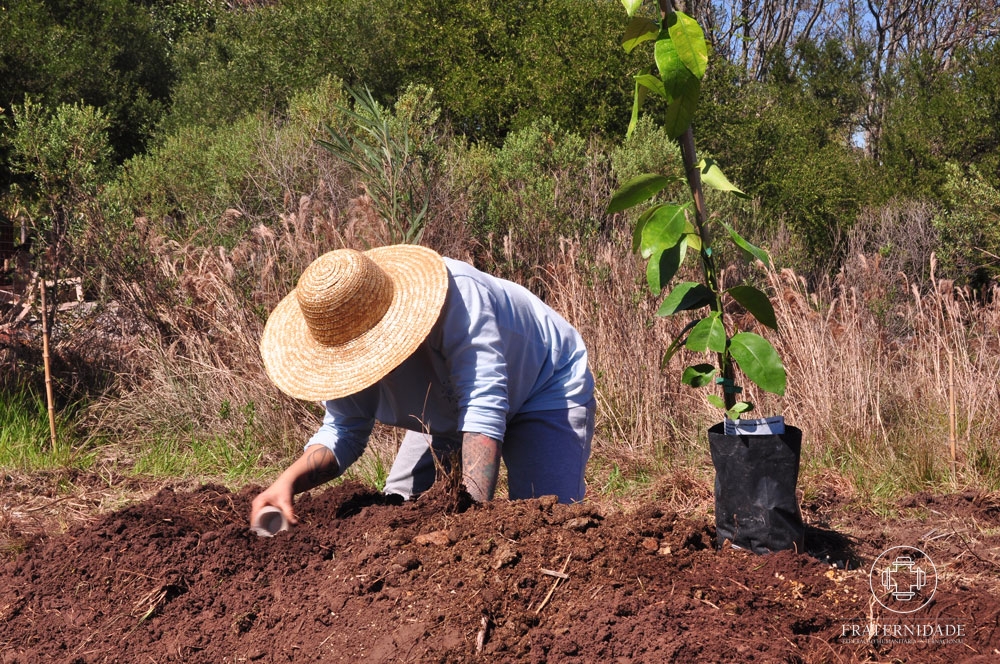International Earth Day was established by the United Nations to create worldwide awareness on the preservation of biodiversity and the environment. Currently, one of the most serious environmental problems is the exploitation of the land for economic reasons, without taking into account the natural recovery of the soil and maintaining a diversity of species, causing desertification and extinction in the more extreme cases.
Care for the Kingdoms of Nature is among the principles of the Light-Communities, as well as a vegetarian diet; and they have a great objective as a challenge: self-sustainability through polycultures (different crops in the same area), without harming the environment and its functioning.
The Light-Community Fraternity, of Aurora, affiliated with the Fraternity – International Humanitarian Federation (FIHF), has been expanding its crop areas in recent years, but at the same time going through high and low cycles with regards to production, due to soil degradation and the experimental period for species that adapt better to the extremes climates of the region of Uruguay where it is located. To improve this situation, a plan of action was made: invest in a soil correction with green manure; reduce the variety of seeds, leaving the ones that best survive that type of climate and that are eaten the most; and create a list of priorities to focus on, during the period of sowing, the areas appropriate for each kind of crop. The result would lead to more effective soil management, respecting the diversity of the species of each area.
Friar Akhbar, member of the planting group of the Light-Community, told us about his experience: “The greatest lesson is trying to work with less quantities, but optimize the quality. Monitor the crops more, give the best of oneself, because in the beginning, we had many impulses [to plant] without taking into account the scope [of the work] to monitor all the fronts, and those failures taught us that the plant can produce ten times more if it receives the necessary care.”
As to that, there was the implementation of the agroforestry system and the updating of the pure seed bank taking place, as a complement to the project of auto-sustainability. Agroforestry is a system that is having a great impact because it is focused on improving the productivity of the soil, while at the same time, being ecologically sustainable. Among its main benefits are: the physical protection of the soil, the effects on the microclimate, the recycling of nutrients and the diversification of production by planting trees and the distribution of plants in such a way that they create cooperation with each other.
“The agroforestry system is something very new to us, but we are taking great care of the trees we have planted, with their fertilization and with a more natural way of managing pests. Our intention is to take good care of the trees so that they survive the harsh winters of the region,” Friar Akhbar tells us.
Every week, group work is done, in which the Community gathers to carry out a task in common. When the group work is done with the crops, a pleasant environment of cooperation and communion with the Kingdoms of Nature is generated. On entering into contact with the seeds and what they generate as plants and fruit, the consciousness wakes up to the great capacity the Plant Kingdom has of giving its life and providing food when the necessary care is provided.
With joy, Friar Akhbar remembers the day when the peanuts were harvested: “There were many people that normally are not working with us, and I remember that one of them, when they picked up a peanut plant with many pods, said in amazement: ‘But this came from a single seed?’ Like they couldn’t believe that a little seed could produce so many pods with so many peanuts in them.”
He ends by saying: “It is incredible that there are places where people die of hunger, knowing of the abundance that the earth can generate. Nature gives us everything, and it is important to be able to see that we live and survive because of it. It’s necessary that we thank it, offering spaces where life is able to prosper again.”










